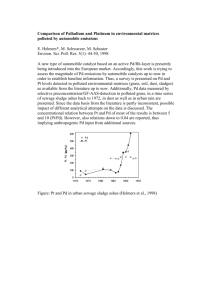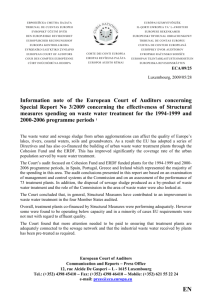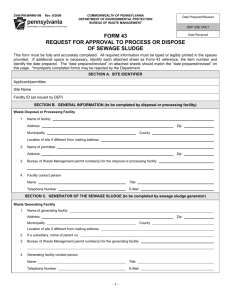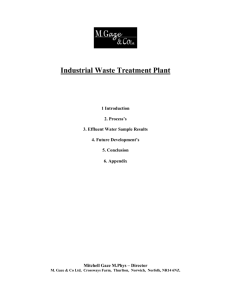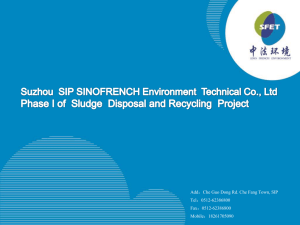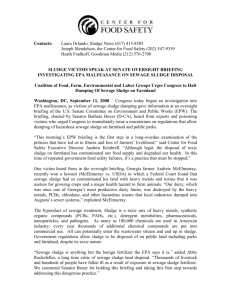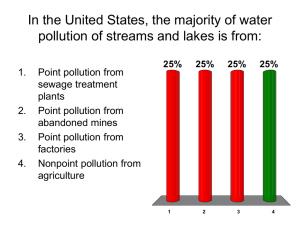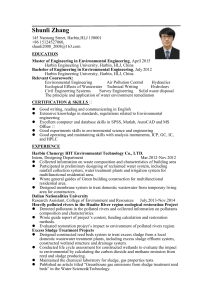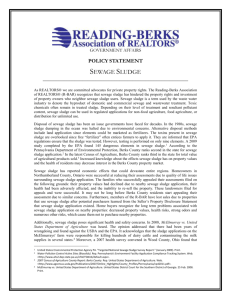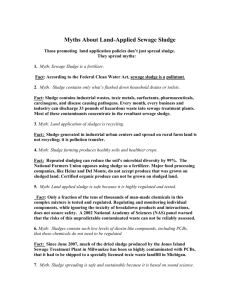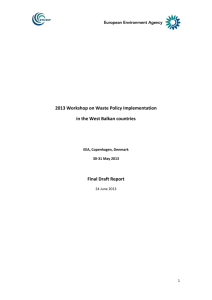DOC - Europa
advertisement
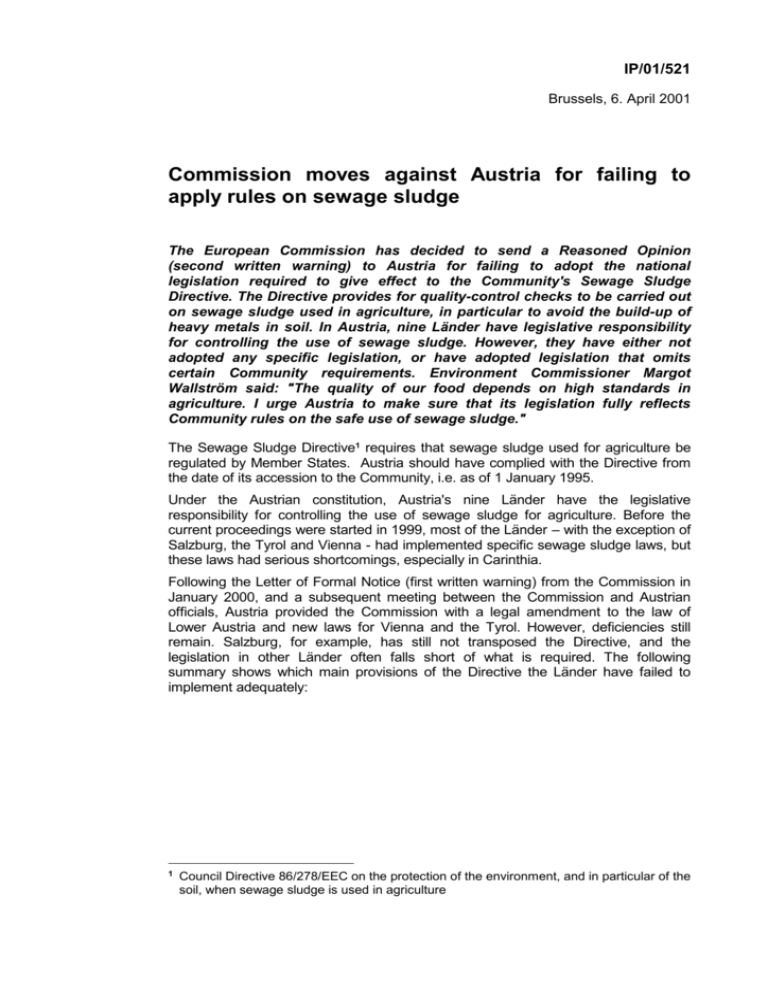
IP/01/521 Brussels, 6. April 2001 Commission moves against Austria for failing to apply rules on sewage sludge The European Commission has decided to send a Reasoned Opinion (second written warning) to Austria for failing to adopt the national legislation required to give effect to the Community's Sewage Sludge Directive. The Directive provides for quality-control checks to be carried out on sewage sludge used in agriculture, in particular to avoid the build-up of heavy metals in soil. In Austria, nine Länder have legislative responsibility for controlling the use of sewage sludge. However, they have either not adopted any specific legislation, or have adopted legislation that omits certain Community requirements. Environment Commissioner Margot Wallström said: "The quality of our food depends on high standards in agriculture. I urge Austria to make sure that its legislation fully reflects Community rules on the safe use of sewage sludge." The Sewage Sludge Directive1 requires that sewage sludge used for agriculture be regulated by Member States. Austria should have complied with the Directive from the date of its accession to the Community, i.e. as of 1 January 1995. Under the Austrian constitution, Austria's nine Länder have the legislative responsibility for controlling the use of sewage sludge for agriculture. Before the current proceedings were started in 1999, most of the Länder – with the exception of Salzburg, the Tyrol and Vienna - had implemented specific sewage sludge laws, but these laws had serious shortcomings, especially in Carinthia. Following the Letter of Formal Notice (first written warning) from the Commission in January 2000, and a subsequent meeting between the Commission and Austrian officials, Austria provided the Commission with a legal amendment to the law of Lower Austria and new laws for Vienna and the Tyrol. However, deficiencies still remain. Salzburg, for example, has still not transposed the Directive, and the legislation in other Länder often falls short of what is required. The following summary shows which main provisions of the Directive the Länder have failed to implement adequately: 1 Council Directive 86/278/EEC on the protection of the environment, and in particular of the soil, when sewage sludge is used in agriculture Carinthia: The prohibition on the use of sewage sludge where soils contain excessive levels of heavy metals and the requirement to prevent the excessive buildup of heavy metals due to the use of sludge; the rules to be observed when using sludge, for example, to ensure that water quality is not affected. Carinthia and Styria: The requirement that sewage sludge be treated, or, if untreated, have its use specifically authorised. Burgenland and Carinthia: The prohibition on the use of sludge for certain types of agriculture (e.g. on soil in which vegetable crops are growing). Burgenland, Carinthia, Lower Austria, Styria, the Tyrol and Vorarlberg: The rules for testing sludge and soil. Burgenland, Carinthia, Lower Austria, Upper Austria, Styria, the Tyrol and Vorarlberg: The requirement to keep up-to-date records relating to sludge. Background As guardian of the EC Treaty, the Commission must ensure that the legal requirements of the Treaty and adopted legislation are respected by Member States. The procedure being followed in this case relates to Article 226 of the Treaty, which gives the Commission powers to take legal action against a Member State that is not respecting its obligations. If the Commission considers that there may be an infringement of Community law which warrants the opening of an infringement procedure, it addresses a "Letter of Formal Notice" to the Member State concerned, requesting it to submit its observations by a specified date, usually two months, as in this case. In the light of the reply or absence of a reply from the Member State concerned, the Commission may decide to address a "Reasoned Opinion" (or second written warning) to the Member State, clearly and definitively setting out the reasons why it considers there to have been an infringement of Community law and calling on the Member State to comply within a specified period (normally two months). If the Member State fails to comply with the Reasoned Opinion, the Commission may decide to bring the case before the European Court of Justice. 2
